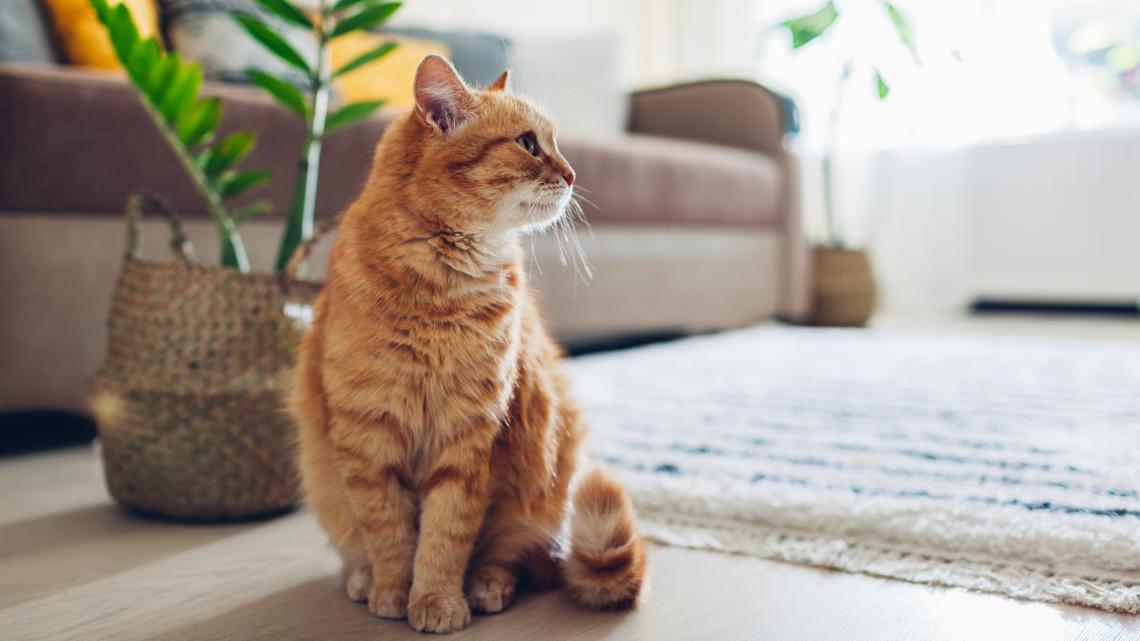
Several cats from Multnomah and Clackamas counties, all of whom lived indoors and belonged to different households, were reported to have consumed the same brand of raw food, Wild Coast Raw, produced in Olympia. Tragically, four of these felines have passed away.
PORTLAND, Ore. — Recently, two cats in Multnomah County were euthanized after they contracted avian influenza. This outbreak has been linked by agricultural authorities in both Oregon and Washington to a raw pet food brand based in Olympia.
The Oregon Department of Agriculture confirmed that the affected cats came from separate households, with their owners opting for euthanasia due to the severity of their pets’ illnesses.
Both cats had been fed Wild Coast Raw food. Testing confirmed the presence of the bird flu virus in samples taken from both the animals and their food.
Previously, officials reported two feline fatalities in Washington County attributable to H5N1. One of these was an outdoor cat known for interacting with ducks and geese; a separate incident in December was tied to raw pet food from Northwest Naturals.
The avian influenza virus, identified as H5N1, has been affecting bird populations across the United States, including those on both commercial and backyard farms. The variant found in Wild Coast Raw pet food is classified as highly pathogenic avian influenza (HPAI).
“As a result of these findings and additional testing by the Washington State Department of Agriculture (WSDA), a public health alert has been issued to warn consumers about the risk of HPAI in specific batches of raw pet food from Wild Coast Raw,” officials stated. “Pet owners are strongly encouraged to verify the lot numbers of any Wild Coast Raw products they may possess. If their product matches the affected lots, they should discontinue use immediately.”
The WSDA maintains an updated list of products and specific lots identified as safety concerns.
According to agricultural experts, cats are particularly vulnerable to H5N1 and should be protected from exposure as much as possible. The most common sources include undercooked or raw meat, raw milk, consumption of wild birds or other animals, and contact with unwashed hands after handling raw meat or interacting with poultry or livestock.
While dogs can contract H5N1, the Oregon Department of Agriculture reports that they appear to be less affected by the virus compared to cats.
If pet owners suspect that their animal may have contracted H5N1, they should consult a veterinarian immediately to discuss symptoms and any potential exposure. Veterinarians are required to report any suspected avian flu cases in animals to the Oregon Department of Agriculture at (503) 986-4711.
Symptoms in cats related to the virus may include fever, nasal and ocular discharge, and decreased appetite. Fortunately, there have been no confirmed instances of HPAI transmission to humans from infected cats, according to the ODA.
Health officials monitoring additional cases
Last Friday, KGW spoke with Dr. Ryan Scholz, the state veterinarian at the Oregon Department of Agriculture, who indicated that further cases connected to West Coast Raw pet food are expected, likely increasing the total of confirmed H5N1 cases to six.
“Feeding raw food always carries risks, not only of this virus but also of any pathogens that could be present in the meat. Cooking and pasteurization are designed to eliminate these bacteria and deactivate viruses. Removing these safeguards increases potential risks,” he explained.
“So far, we have reported these two cases, but additional investigations are underway.”
Two of the new cases may be from Clackamas County, where Christine Knopp’s indoor cats exhibited symptoms. Her veterinarian tested three animals for bird flu, and results returned positive. Subsequently, the Oregon Department of Agriculture also tested her remaining cats.
“We want to ensure that no one else is affected and continue testing until all are confirmed clear since it’s still an emerging issue,” she shared with KGW.
Unfortunately, two of her cats lost their battle with the virus.
“We mourned the loss of my elderly Sphynx and recently my 1.5-year-old cat, Hattie. I am concerned about the others too,” she lamented.
Her Sphynx cat, Gandalf the Pink, was the first to show signs of illness, eventually losing her ability to walk.
“She was stumbling, and I knew it was time. I arranged for at-home euthanasia, staying up all night by her side. As I observed her declining health, I noticed my other two cats breathing more rapidly and grew increasingly worried that it might be bird flu,” Knopp recounted.
Knopp had been feeding her cats the same brand of Wild Coast Raw pet food.
One of her remaining cats is currently hospitalized, and she remains hopeful for a recovery.
“I hold onto cautious optimism,” she expressed. ‘During the drive to the hospital, I was informed that there have been no survivors with advanced pneumonia resulting from bird flu.’









